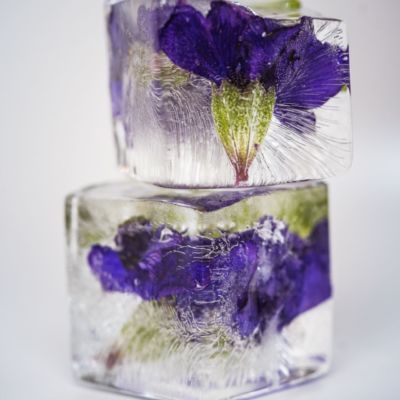
What are the characteristics of a good photographer?
1. Curiosity about the world and inquisitiveness
This is usually where it all starts. We grab the camera when something interests us, and then everything goes downhill. At the beginning, we photograph the world around us, what we encounter every day, to which we have the easiest access. It is obvious that we will not be willing to capture what we find boring and not worth showing.
A good photographer is interested in what is happening around him. He feels the need to react and capture interesting things and moments. Additionally, he is not afraid to ask questions, he is curious about the world and wants to get to know it as best as possible. Sometimes he uses photography for this purpose, other times he looks for answers in various sources.
2. Sensitivity
Many photographers are highly sensitive, on the one hand it helps them a lot at work, but on the other hand, it can be a nuisance. Today we will focus on these positive aspects.
Sensitivity makes us see and feel more than others. Thanks to this, we have a greater ability to admire what surrounds us. We are more sensitive to widely understood beauty, we are moved not only by the landscape, but also by art, music, and we can even be inspired by the smell we smell. In addition, sensitive people are very perceptive, they are able to capture nuances that no one else would notice. This is very handy for photography.
3. Perceptiveness
We associate perceptiveness primarily with the work of a reporter or wedding photographer. Here, great vigilance and perceptiveness are required in order not to miss important moments of the event.
But here’s some good news for you. This can be learned. Many events have fixed points of interest that always follow the same course. Over time, the photographer knows what to catch at any given moment, what feelings may arise and what photos are “must have” in this case.
I also have the impression that the photography itself improves our perceptiveness quite well. Since taking pictures, I notice a lot more.
Besides, our brain works in such a way that we can put a “filter” on it ourselves. During the next walk, try to focus only on the red cars, suddenly it turns out that there are many more of them on the streets than we expected.
When we focus on one part of the world, our mind focuses only on that, filters the information that reaches us in such a way as to show only what we are interested in. Thanks to this, we can observe a lot of interesting dependencies. It also helps in the creation of many thematic photo series, where our well-known places are presented in a completely different, unknown way.
4. The need for continuous development
You can’t go without it. Let’s face it, you won’t get much from just holding the camera in your hand, even if it’s a very expensive camera. Photography is a wide field and it cannot be denied that no one is able to comprehend everything in one day or even a week. It is continuous learning, exploring newer and more topics, which requires a lot of patience, time and commitment.
At the beginning, we cover the basics and all technicalities, then there are more complicated issues, e.g. related to retouching. Over time, we also have to deal with marketing issues and those closely related to running our own business.
Being inspired by other artists, reaching for art and science. Reading, watching, networking. Continuous improvement, participation in courses and training is also an indispensable part of a professional photographer’s life.
The hardware itself is also worth mentioning here. Investing in it is also part of the photographer’s development, so it’s worth doing it wisely, so as not to get stuck due to deficiencies in theory. Only those who made this mistake at the very beginning of their journey know how much money can be unnecessarily wasted on bad hardware investments.
5. Patience
It takes time for everything. We will not immediately understand all photographic techniques or find our own style in photography. It’s a process that continues. Anyway, the photographer is still waiting for something: for inspiration, for the right (decisive) moment, for the model, for the mixing of photos from the session, for the answer, for the transfer;), for the equipment, for the willingness to work. Etc, etc.
Therefore, patience is a very big advantage in this job, and combined with a great need for self-improvement and diligence, it is a great recipe for success.
6. Humility
Humility is called a moral virtue and consists in recognizing one’s own limitations and therefore not elevating oneself above others. It is also the ability to calmly accept criticism and not brag about your achievements.
Let’s face it, there will always be someone better than you. There will always be an older, more experienced friend.
It is worth being aware of your shortcomings and trying to gradually supplement them. Remember also that photography is quite a special field and surely your works will not be liked by everyone. Even if they will be appreciated by a large group of people and printed in prestigious magazines.
This is how it is with this work.
7. Flexibility
It is mainly about the ability to adapt to the situation. Often, when you go on commission, you don’t really know what awaits you and you are not able to plan everything. You also never know 100% who you will be dealing with (unless you are going to a session with a friend you know well) and how the person will behave. Or what will happen to you during the shooting.
A good photographer will not collect equipment and go home when it starts to rain, but look for a solution to the situation. He will adapt to unexpected changes just as quickly and he will know how to behave with a given person.
Life writes various scenarios, you are not able to prepare for everything.
8. Communicativeness
In fact, every job involves any contact with people (even small and once in a while). That is why it is worth knowing how to talk. I do not even mention that in the case of photographers working with models, or for example at weddings, this skill is almost essential. You will not avoid a conversation, and establishing a relationship with a couple or a model will create a good atmosphere during photos (how to ensure a good atmosphere during photos?) And give better photos as a result.
Communicativeness is not only the ease of making friends. It is also a clear message before and after the session, which is also very important. Such a photographer does not disappear without a trace after the session, but can clearly present his situation to the other person. If you have been taking photos for some time, you have certainly encountered a situation (whether at home or at your friends’) where two parties did not get along and a not nice situation resulted. Let’s avoid such things.
9. Professionalism
The last but probably one of the most important points. Professionalism, which results not only from substantive and technical preparation for work. It manifests itself not in the amount of equipment but in the behavior of a given person.
A professional is a verbal person you can rely on. He has sufficient knowledge to properly perform the task he undertakes. He is not late, he is always prepared for his work, he can behave well.
He clearly communicates his needs and requirements. It requires, but does not dress up like a star. He also has the right approach to the client, speaks to him with respect, but sometimes it is firm when necessary. He does not let himself go on his head. On the other hand, the client also feels taken care of by him or the photographer’s behavior makes him trust him that he will do his job well.
He knows his job and does it to the best of his ability.
Summary
As you can see, success consists of many factors, but it is primarily systematic and hard work. When looking at your masters, remember that you are already seeing a new stage in their lives. The beginnings are usually difficult for everyone, so it is not worth getting discouraged and patiently striving to achieve your goals.
I wish you good luck and let me know about your photos 🙂











